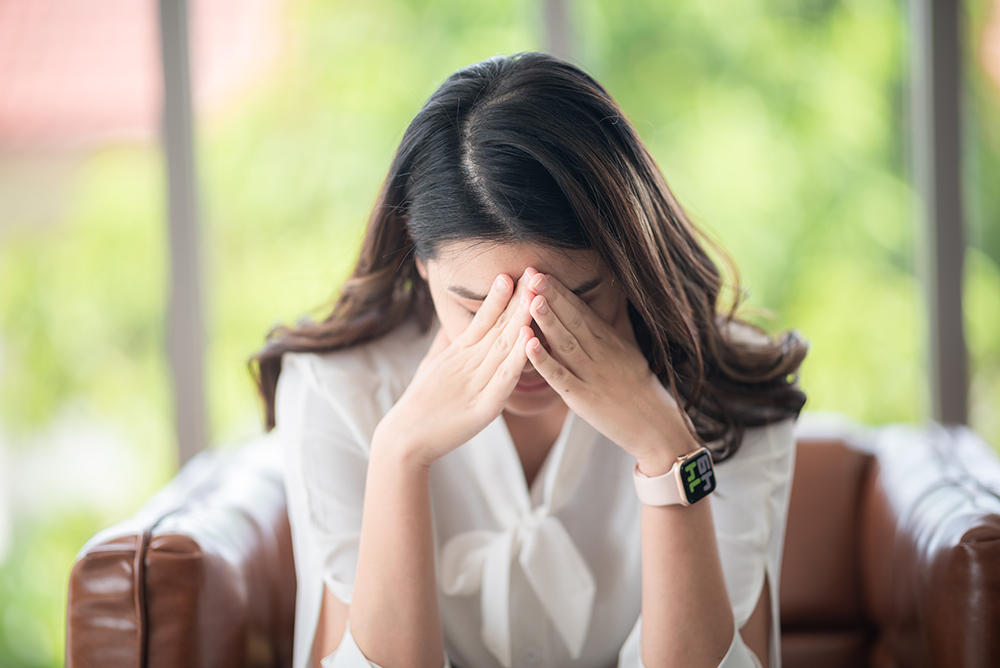Stress is unavoidable. It can cause us to feel a variety of uncomfortable emotions, including nervousness and uncertainty. Since we all experience these anxious feelings every now and then, it’s easy to brush off and assume it will go away with time. But with diagnosable anxiety, that’s not always the case.
Anxiety usually refers to generalized anxiety disorder. It can interfere with every aspect of your life. When you’re unable to manage your anxiety, it’s time to seek further support and care, such as inpatient treatment.
We’ll talk about who can benefit from inpatient treatment for anxiety, what to expect from an inpatient stay and the steps you should take after being discharged.
Is inpatient treatment for you?
When we’re discussing anxiety as a mental health disorder diagnosis, we’re referring to generalized anxiety disorder, or GAD. This disorder is characterized by persistent feelings of worry, often without a reason. Besides overwhelming nerves and uncertainty, anxiety can also cause heightened agitation, concentration issues and sleeping issues.
Inpatient treatment for mental health disorders, including anxiety, consists of 24/7 intensive care in a treatment facility. It helps people during a mental health crisis to receive comprehensive behavioral care as well as medical care if needed.
Inpatient care may be appropriate if:
- Your disorder symptoms are interfering with your ability to function on a daily basis
- Your symptoms interfere with your ability to take care of yourself, such as proper hygiene
- You’re at risk to yourself or others
- You’re developing physical health issues, such as stomach pains
- Your symptoms haven’t improved through outpatient treatment
What to expect from inpatient treatment for anxiety
Inpatient treatment for anxiety involves a stay at a psychiatric hospital or psych unit in a hospital. The length of an inpatient treatment stay can range from a few days to several weeks. Most people are discharged after three to seven days. The time frame will depend on the type and severity of your symptoms. How receptive you are to the treatment also plays a role.
When you’re admitted to an inpatient treatment facility for anxiety, you will be evaluated both medically and psychologically.
During inpatient treatment for anxiety, you will have a structured schedule based on a personalized plan. An inpatient treatment plan for anxiety will often include:
- Therapy in various dynamics, including one-on-one and group sessions
- Prescription medication management
- Support groups
- Education
What to do following inpatient treatment for anxiety
Seeking inpatient treatment for anxiety can help alleviate the severe symptoms that are interfering with your daily functions. After you’ve been discharged, it’s important that you continue your mental health journey. You should seek the proper support to help you manage your anxiety going forward.
The goal of mental health treatment is to provide you with the support and skill development you need to manage your anxiety symptoms.
After you’re released from an inpatient treatment facility, you can explore different levels of care. We have each of the following through Lightfully Behavioral Health:
- Residential Treatment Center (RTC) — One of the most effective ways to transition after inpatient treatment is through a Residential Treatment Center. An RTC provides extended stays in a home-like setting for 24/7 behavioral care. On top of therapy, including group, one-on-one and family sessions, RTCs often include activities such as movement opportunities and outings.
- Partial Hospitalization Program (PHP) — Also referred to as a Day Treatment Program, a Partial Hospitalization Program provides you with behavioral care and a structured schedule in a treatment facility without an overnight stay. It can help alleviate your anxiety symptoms while still encouraging independence and autonomy because you return home each night where you can immediately integrate your new skills into your lifestyle.
- Intensive Outpatient Program (IOP) — After you’ve completed other levels of care following inpatient treatment, such as RTC or PHP, your provider may determine that you have shown considerable progress and don’t need a full day of structured programming and behavioral care. IOP involves three to six hours of programming a day and focuses mostly on group sessions.
Lightfully Behavioral Health can help you after inpatient treatment for anxiety
Your mental health journey will include a variety of steps and treatments to help you learn how to manage your anxiety and improve your overall quality of life. The framework of our clinic consists of evidence-based, clearly defined, data-driven and whole-person-centered care.
Change is possible. When you’re ready to take the first step, reach out to our Admissions Concierge Team. We’ll take the next steps together, toward the fullest, brightest version of you.






